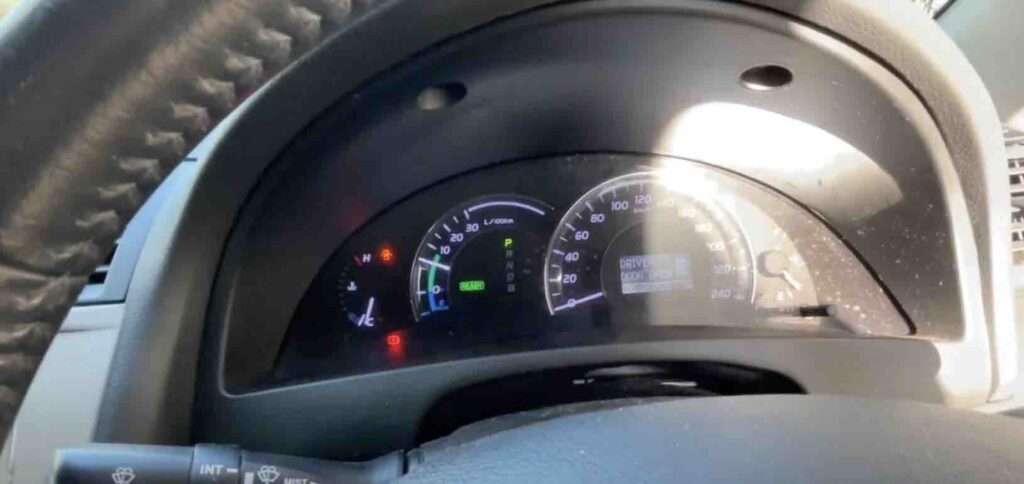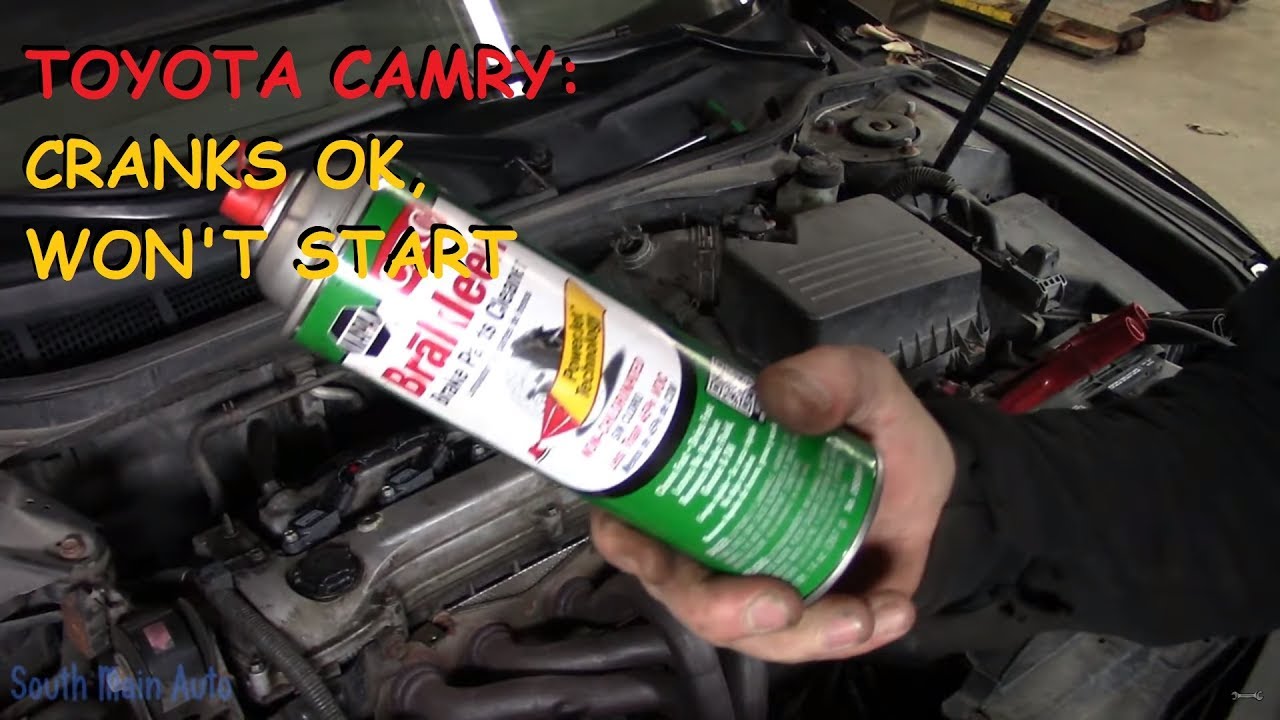If your toyota camry won’t start but has power, it could be due to a faulty starter motor or a weak battery.

Credit: ehcar.net
Checking The Battery And Connections
The toyota camry may experience power but fail to start. It’s essential to check the battery and connections thoroughly. Begin by inspecting the battery terminals for any signs of corrosion or damage. Additionally, use a multimeter to test the battery voltage accurately.
Furthermore, verify that the battery cables are properly connected.
Examining The Starter System
When your toyota camry won’t start but has power, it could indicate a problem with the starter system. One common sign of a faulty starter is a clicking noise when you turn the key. Testing the starter solenoid can help determine if it is functioning properly.
Another aspect to assess is the condition of the starter motor, which can wear out over time. If these components are malfunctioning, it may prevent the engine from turning over and starting. Understanding these signs and conducting the necessary tests can help diagnose the issue and facilitate the required repairs.
Keeping the starter system in good working order is crucial for the overall performance of your toyota camry.
Investigating The Ignition System
When troubleshooting a toyota camry that won’t start but has power, it’s crucial to investigate the ignition system thoroughly. Start by checking the spark plugs for any signs of wear or damage. These components play a vital role in creating the spark needed to ignite the fuel in the combustion chamber.
Next, test the ignition coil to ensure it is functioning correctly. This coil is responsible for converting the low voltage from the battery into a high-voltage spark. In case either the spark plugs or ignition coil is faulty, it can prevent the engine from starting.
By thoroughly examining these components and addressing any issues, you can improve the chances of getting your toyota camry back on the road.
Evaluating The Fuel System
When it comes to the toyota camry not starting despite having power, evaluating the fuel system is crucial. To begin, verifying the functionality of the fuel pump is essential in determining the issue. Additionally, inspecting fuel lines and filters for any possible blockages is necessary.
By doing so, potential obstructions can be identified and resolved. Lastly, testing the fuel injectors for a proper spray pattern is crucial in ensuring the fuel is delivered effectively to the engine. Proper inspection and evaluation of these components will help diagnose the underlying problem with the camry’s starting issue.
Remember to seek professional assistance if needed to accurately diagnose and fix the problem.
Exploring Potential Immobilizer System Problems
Exploring potential immobilizer system problems is crucial when your toyota camry won’t start but has power. Understanding the role of the immobilizer system helps in identifying issues. One possible problem could be with the transponder key or keyless entry system.
By carefully examining these components, you can pinpoint the cause of the starting issue. Such problems can be frustrating, but with the right knowledge, you can troubleshoot and resolve them efficiently. Remember to check the battery in your key fob and ensure it’s working correctly.
Additionally, consider reprogramming your immobilizer system if necessary. Taking these steps will increase the chances of getting your toyota camry back on the road without any starting troubles.
Consulting The Engine Control Module (Ecm)
The toyota camry may experience power but fail to start due to issues with the engine control module (ecm). This crucial component regulates various engine functions, so it is essential to consult the ecm when encountering starting problems. One way to diagnose the issue is by checking for error codes using a scan tool.
By reviewing these codes and conducting diagnostics, you can gain insights into the specific problem causing the starting failure. This process allows for a targeted approach in troubleshooting and resolving the issue, ensuring that the camry regains its functionality and starts smoothly again.
Seeking Professional Assistance
When your toyota camry refuses to start despite having power, it may be time to seek professional assistance. A mechanic can help diagnose and fix the underlying issue, ensuring your car gets back on the road. Finding a reliable automotive repair shop is crucial, as it guarantees quality service and expertise.
Additionally, understanding the common costs associated with repairs can help you budget and make informed decisions. Identifying the signs that indicate a need for a mechanic’s intervention is essential in preventing further damage. By addressing the problem promptly, you can avoid costly repairs down the line.
Trusting a professional with the expertise to handle your car troubles will save you time, money, and unnecessary stress. Seek their assistance when your camry won’t start, and get back to worry-free driving.
Conclusion
If your toyota camry won’t start but has power, there are several potential causes that can be explored. It could be a problem with the battery, starter motor, ignition switch, fuel system, or even a faulty connection. To troubleshoot, start by checking the battery voltage and connections.
If they are in good condition, assess the starter motor for any signs of damage or malfunction. Additionally, inspect the ignition switch and fuel system components for any issues. Remember to consult your vehicle’s manual or seek professional help if necessary.
Regular maintenance and proper care are also crucial in preventing such issues. By staying vigilant and addressing problems promptly, you can ensure your toyota camry runs smoothly and reliably. Stay informed, take appropriate actions, and enjoy hassle-free driving experiences.

